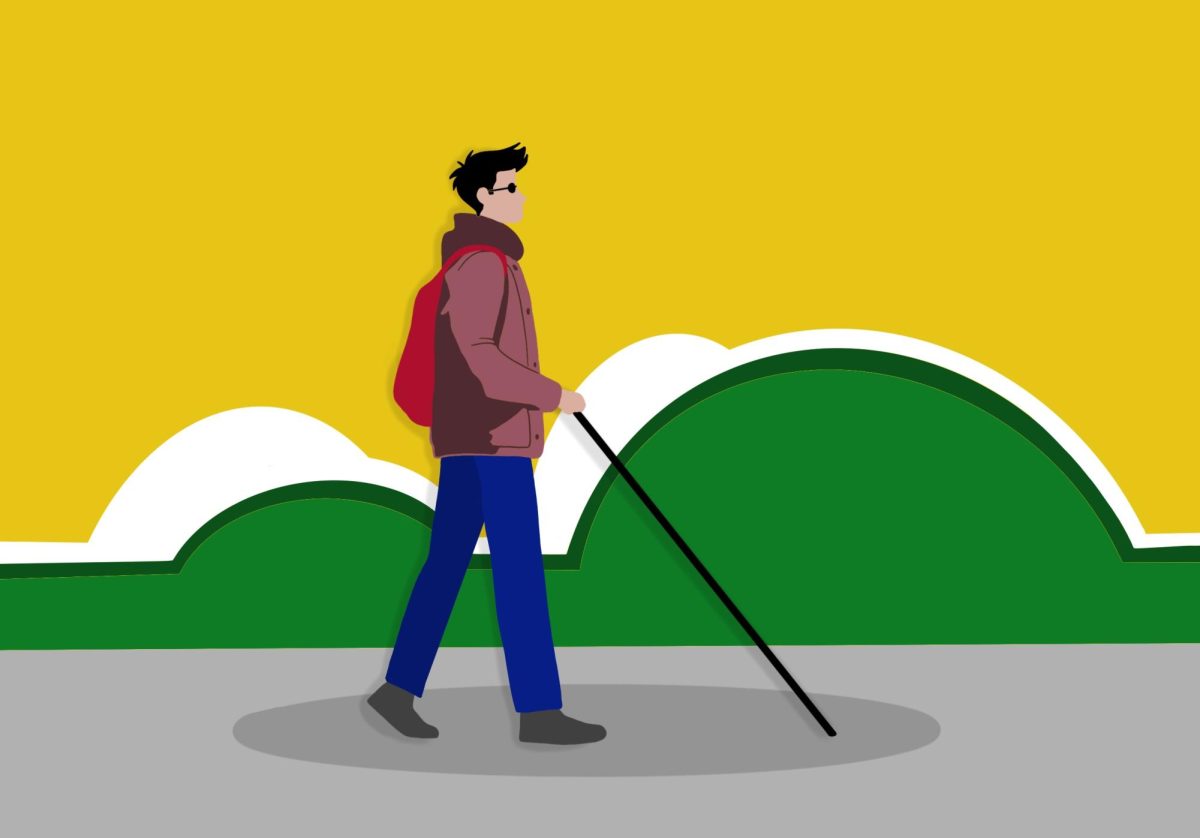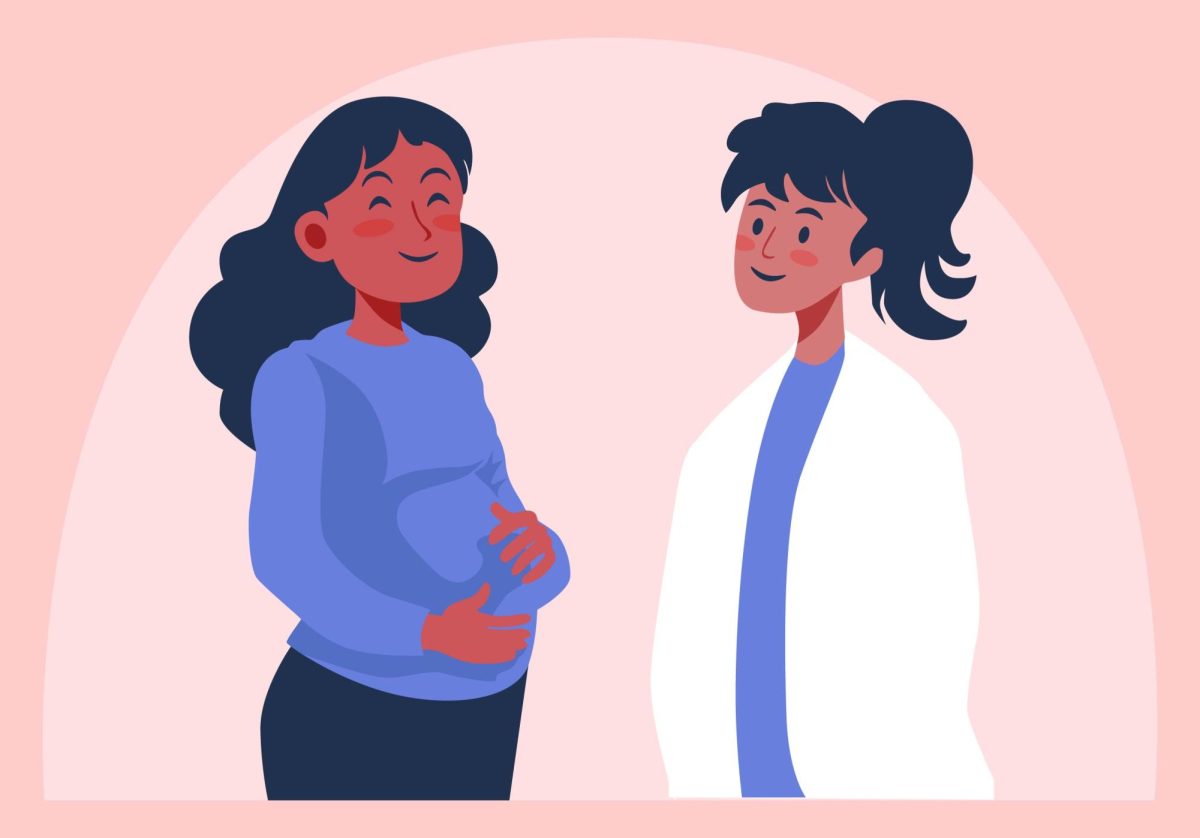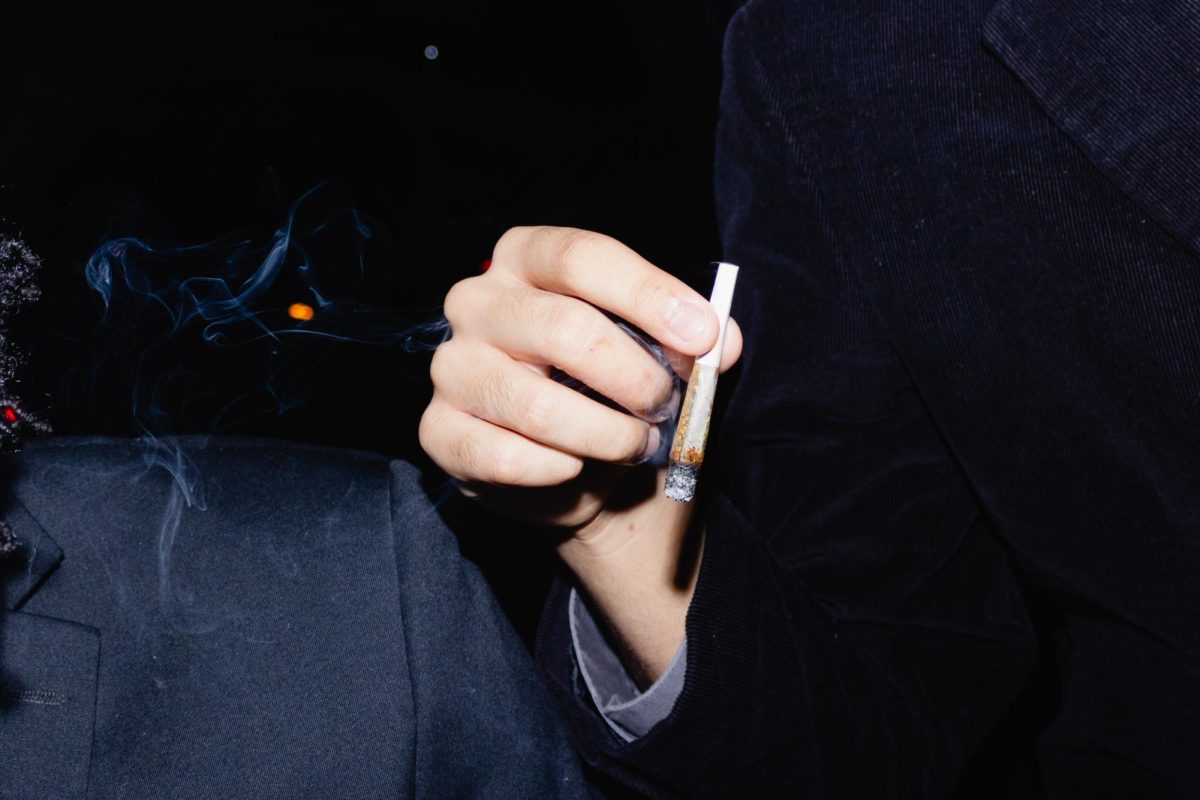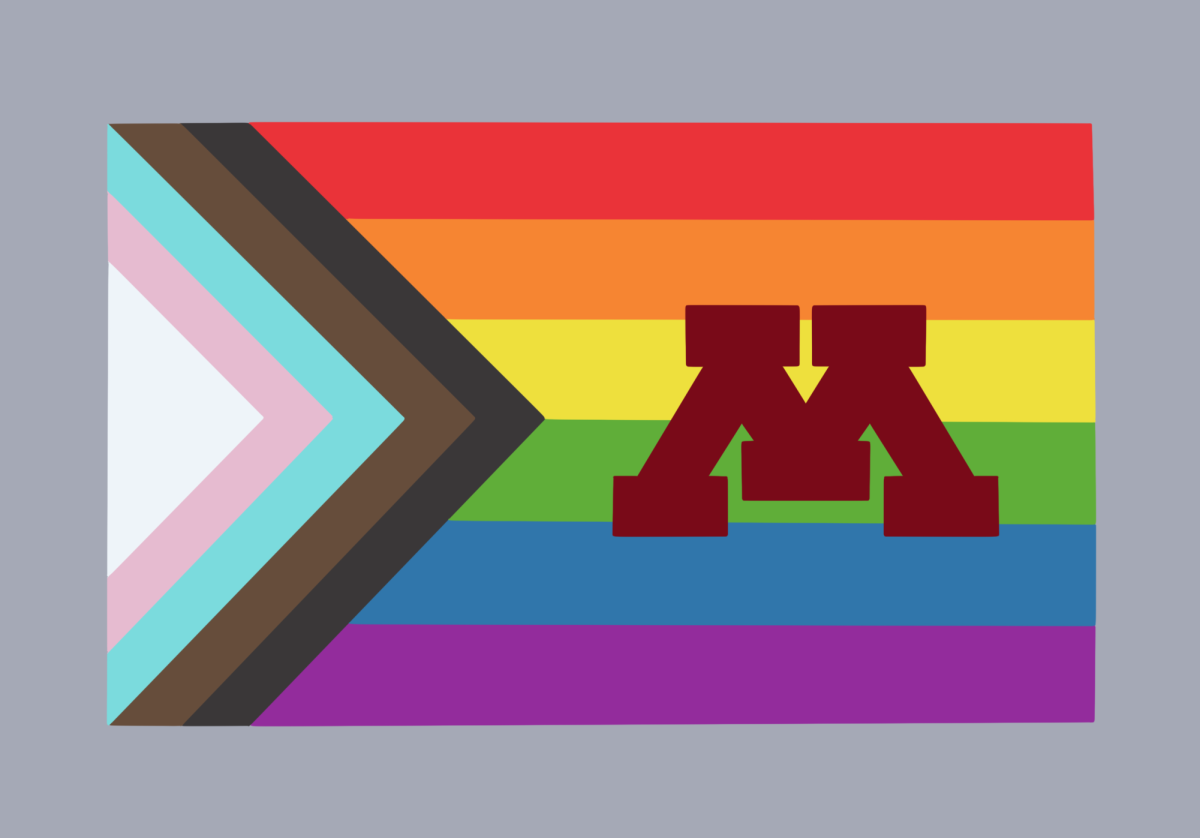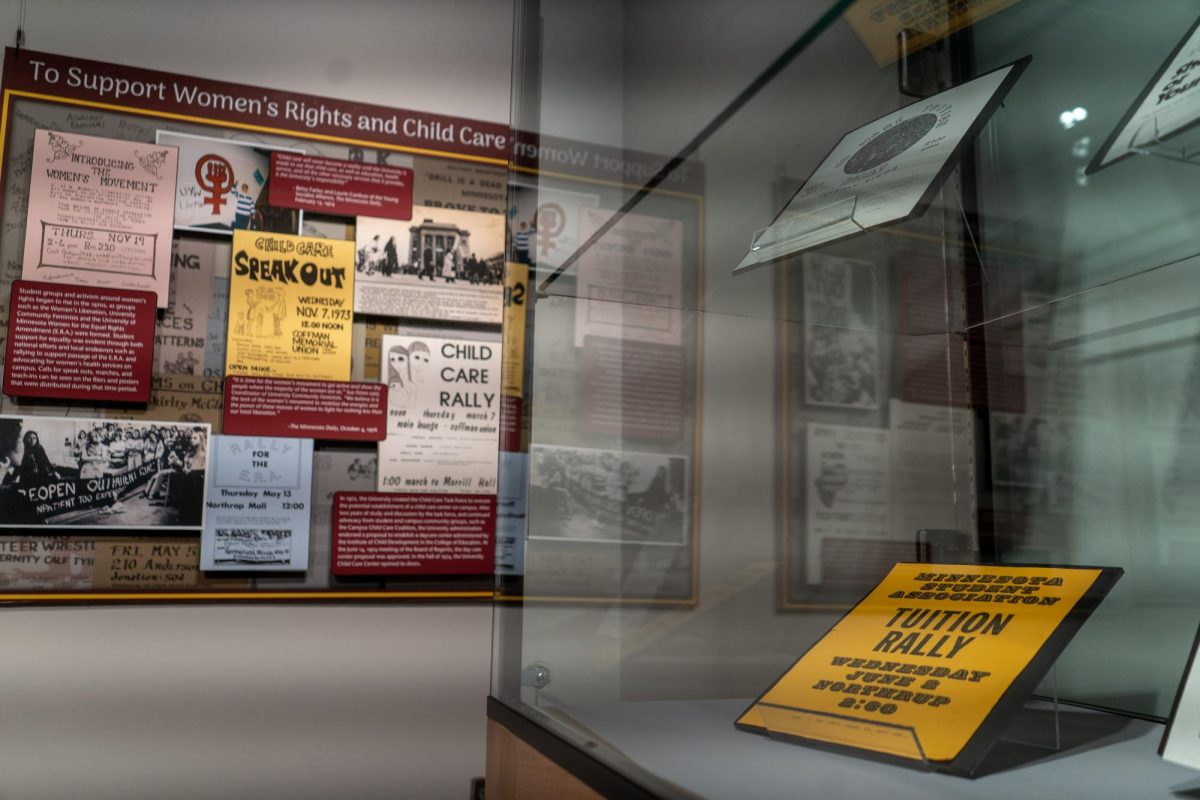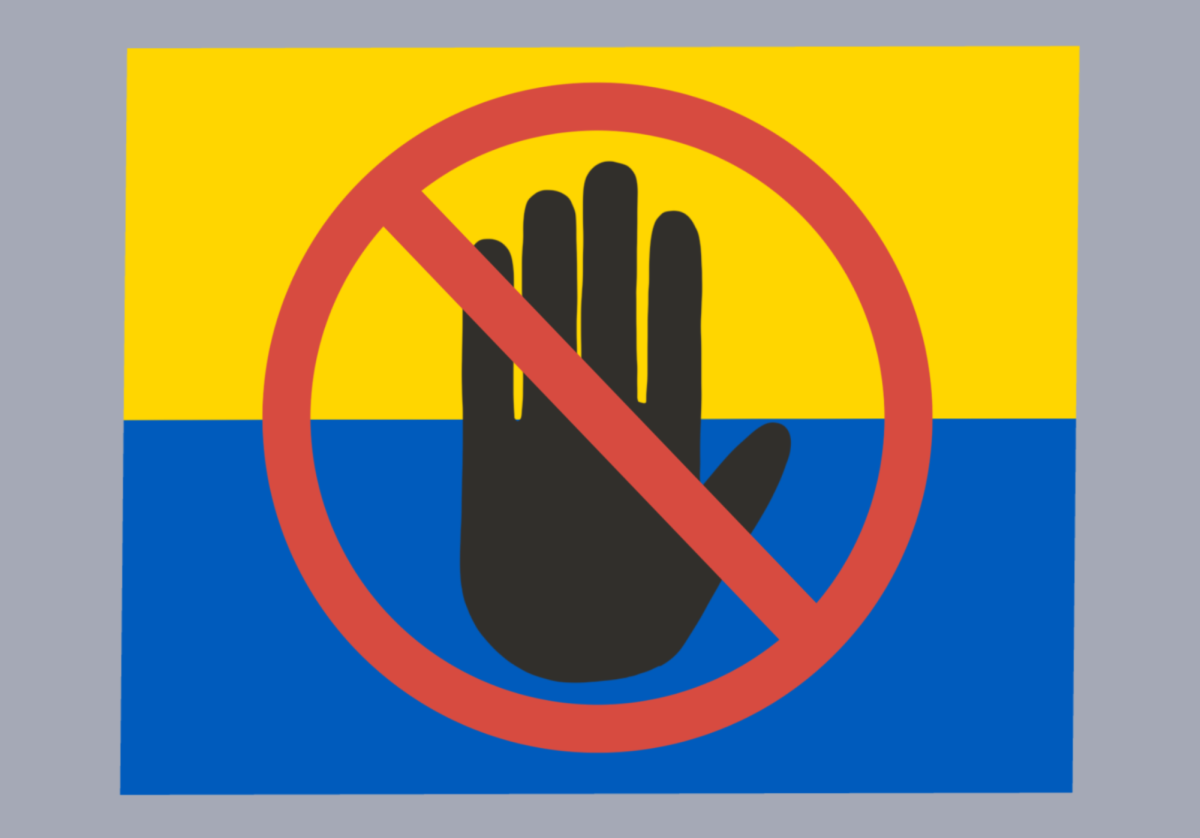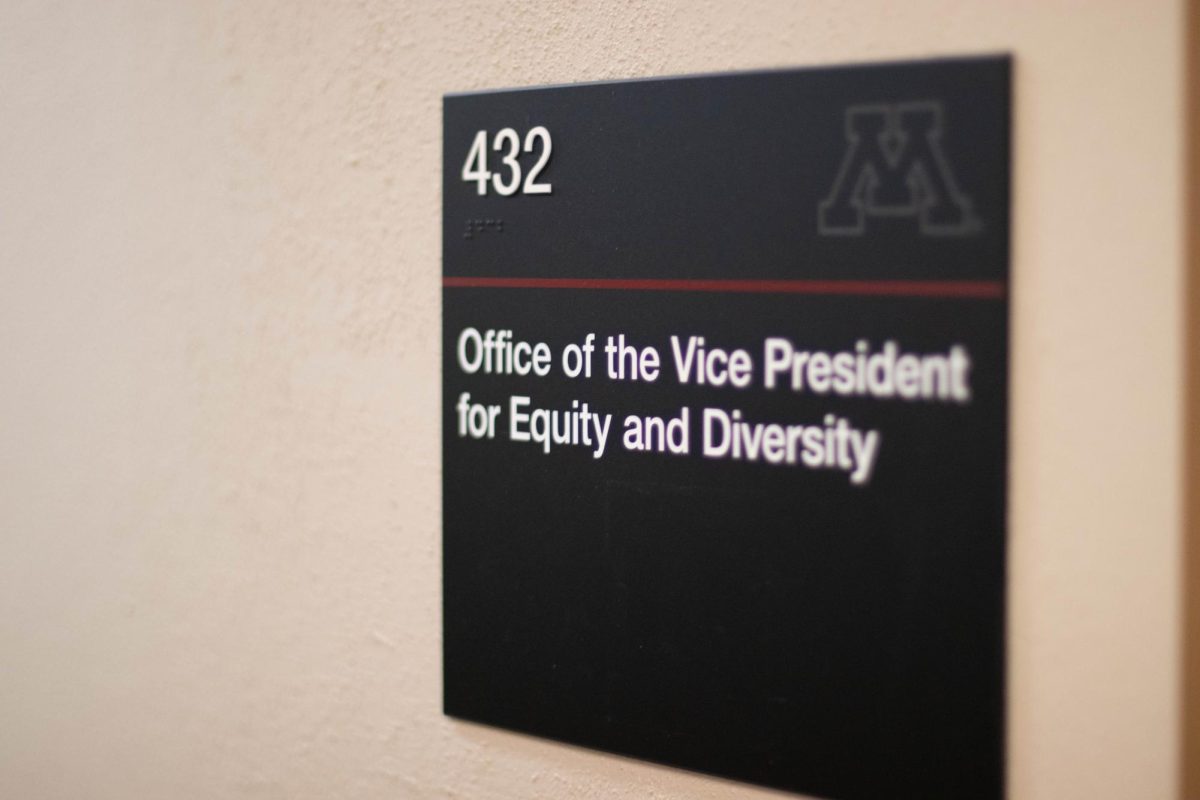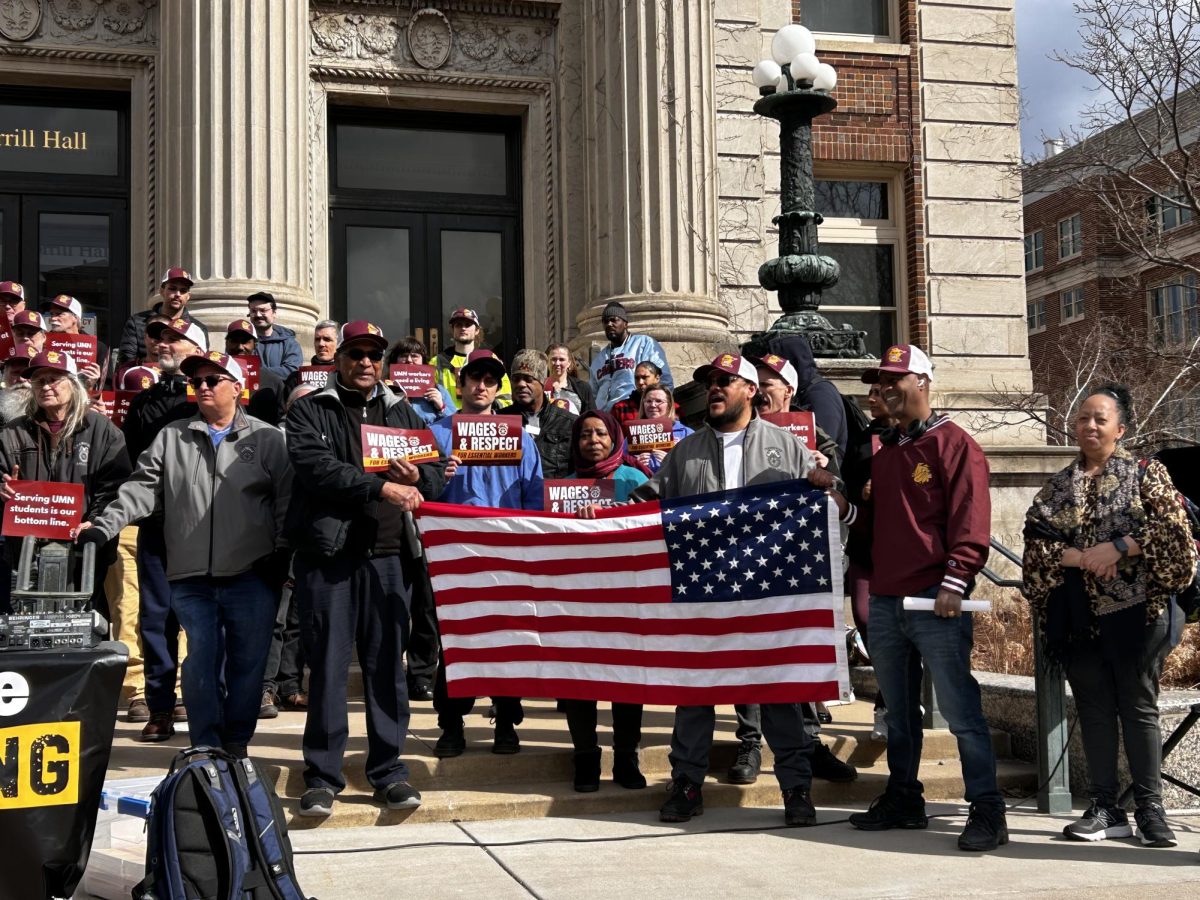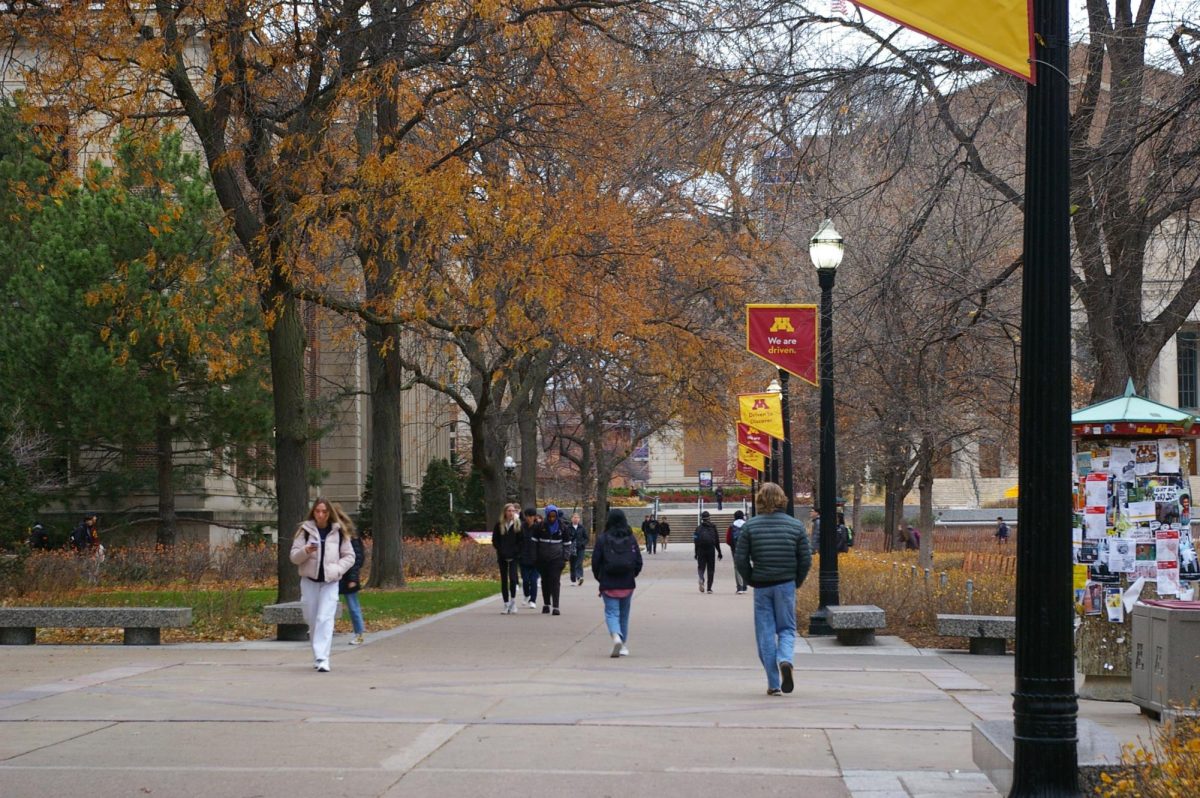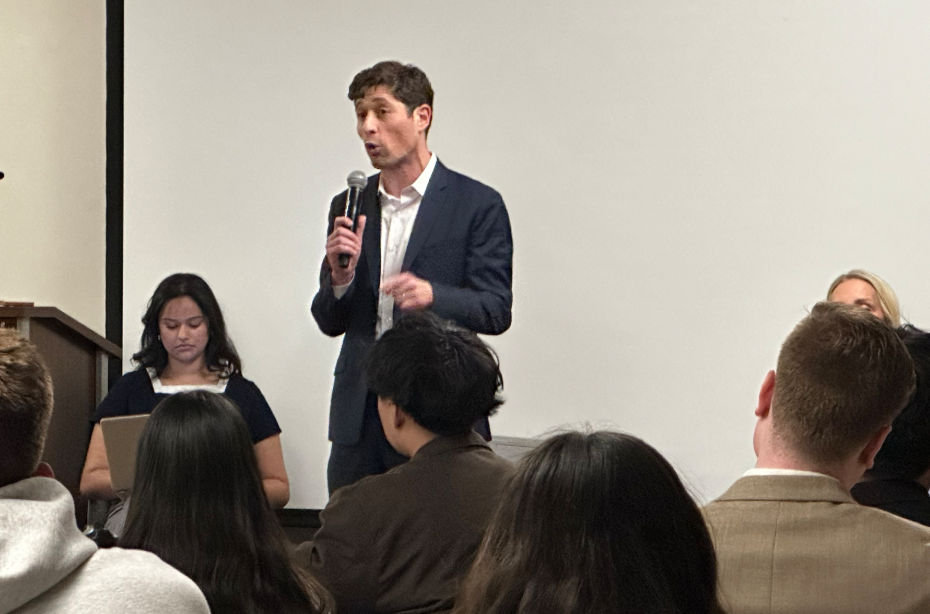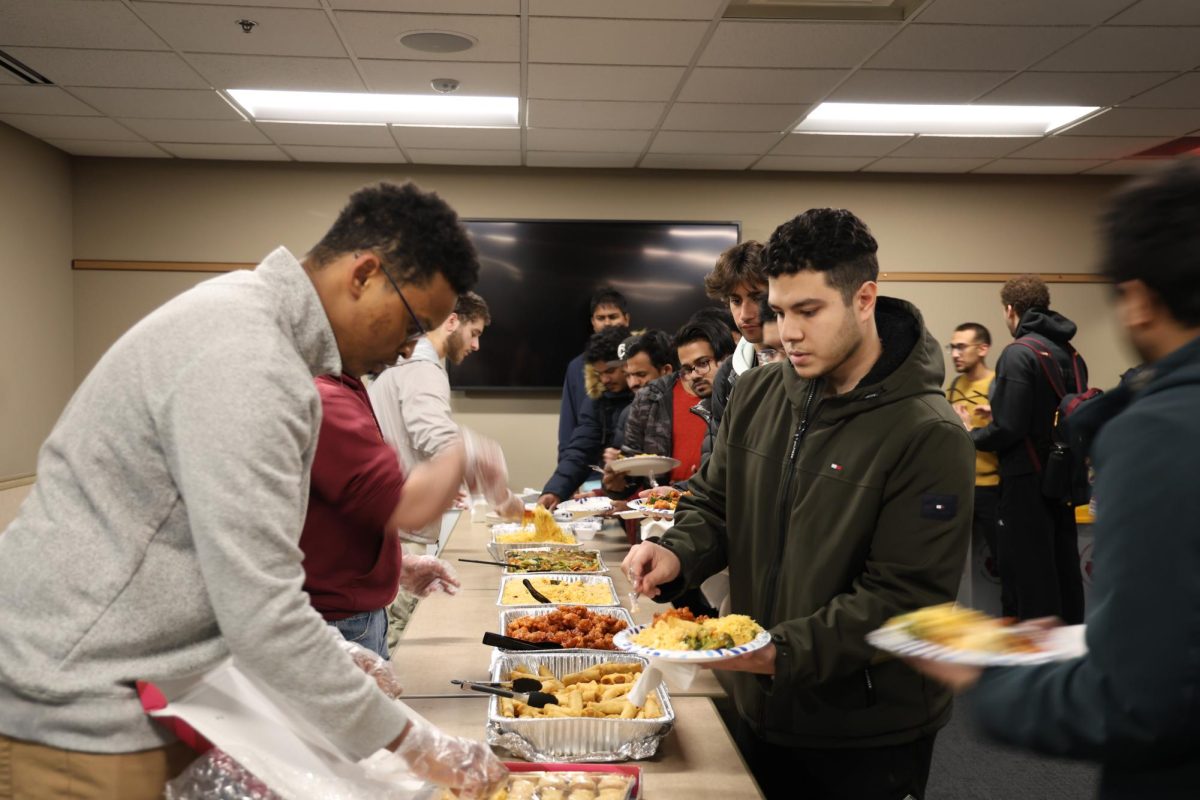Blind and low-vision students at the University of Minnesota have the same concerns as students without disabilities in navigating their academic and social lives in addition to the unique circumstance of not having full vision.
Enjie Hall, the director of the Disability Resource Center (DRC) at the University, said the DRC aims to ensure the University is as inclusive as possible, so students do not need to go out of their way to provide accommodations.
According to the National Federation of the Blind, 30.3% of people with a visual disability have some college education and only 15.7% have a bachelor’s degree or higher. Hall said this may point to accessibility issues during students’ educational journey.
“Disability is not the condition, the health condition, the impairment,” Hall said. “It is that there are barriers in the environment that contribute to that person being disabled.”
Rennick Heatwole, a second-year student at the University with low vision, said his process to get accommodations through the University’s DRC was fairly straightforward, but he believes the current system could use some refinement to make students feel more comfortable accessing resources.
The DRC has two options for accessing accommodations, the Maroon and the Gold pathways, according to its website.
The Maroon pathway is for students who have documentation of previous accommodations that they want to get at the University. The Gold pathway is for students who either have not had accommodations before or who want to explore options for other accommodations.
According to Heatwole, this two-path system can be more streamlined as it can make it more anxiety-inducing for students who are not sure which pathway they fit into.
“The Gold path is so daunting, because it’s like, you need to get in touch with this person, you have to get doctor’s notes, you need to be diagnosed with something,” Heatwole said. “Where the Maroon path is like, ‘Oh, you have to have these super specific documents’ that not everyone has from their high school, or they can’t get back in touch with their high school to get those.’”
Heatwole said that because University buildings do not adhere to a level of uniformity, particularly when it comes to stairs, can make it difficult to navigate.
According to Heatwole, it is obvious architects did not design the buildings with blind or low-vision students in mind.
“If you really want to experience what it’s like, get a blindfold. Put a blindfold on and try to walk around your usual building, like one that you think you know by heart. It is 1000 times harder than you can imagine,” Heatwole said. “For people who are actually blind, that is how they navigate. They can’t take the blindfold off. Then put them in a space like (the University) and say, ‘Oh yeah, find this building. You have 15 minutes.’ It’s crazy.”
Heatwole said there are often misconceptions about blindness.
Having experienced both underestimation and overestimation of his abilities due to his vision, Heatwole said he would rather people wait for him to specify whether he needs accommodations before assuming his capabilities.
According to Heatwole, when people learn about his low vision, they sometimes view him through the lens of his disability rather than as an individual. He said this perception can make people with disabilities feel inclined to hide their condition when possible to avoid being treated differently.
Hall, who is also blind, said the also DRC focuses on working with campus partners, like the Coffman Union and the Recwell Center, so people with disabilities have equitable access to all campus activities and resources.
The DRC provided new services for University community members who are blind or have low vision, and according to Hall, this is thanks to a student advocate.
Access to Information, Remote Access (AIRA) is a visual interpreting service available at no cost to anyone with a University email address, on or off campus, Hall said. AIRA connects users with agents trained to provide navigation assistance and visual interpretation, according to its website.
“Technology is a great equalizer for blind and low vision folks, and part of (ensuring access) is giving access to technology that is extremely costly,” Hall said.
Majed Alhuwayri, a third-year student at the University, spent his first summer in Minneapolis three years ago after flying in from Saudi Arabia for an intensive language course to learn English, a language he had little to no experience with previously.
Alhuwayri was not only adapting to a new language, culture and environment, but doing so while being partially blind.
Now, Alhuwayri is actively involved on campus, advocating for resources and fostering a sense of community that he wishes he had as an overwhelmed student.
Alhuwayri said he works with the University in various capacities as a student advocate, including bringing the AIRA service to the DRC’s attention and advocating for it to be available to all persons with a University email address, not just on campus grounds.
According to Alhuwayri, AIRA removed a barrier to access for blind students who live off campus, like himself.
Alhuwayri has been involved in the Disabled Student Cultural Center (DSCC) since his first year at the University, and this will be his first year serving on its board as the director of advocacy.
The University is home to the oldest disability cultural center in the U.S., founded in 1991, according to Diverse: Issues In Higher Education.
Alhuwayri said the cultural center was exactly what he had been looking for his freshman year — a space for him to gather with students with a wide range of disabilities who had an understanding of his life experiences.
“I was looking for a place where I could find some similarity with people and students that I can relate to and can tell me more about what resources are available, knowing that we all have a form of disability,” Alhuwayri said.
According to Alhuwayri, one advantage of having a designated space for students with disabilities is the opportunity to learn from each other’s experiences. Even when their disabilities differ, a solution that benefits one student may also prove helpful to others.
Alhuwayri said he has found a lot of support through the DSCC, but the intersectionality of his identity as a blind student and an Arab international student means that regardless of where he goes, he is a “minority within a minority.”
To help combat the feeling of otherness that students like him may face, Alhuwayri is engaged in a new initiative this fall.
Abilities Beyond Disability (ABD), a student group established under the international student office, describes itself as a space for international students with disabilities to gain support and resources, according to its webpage.
As the first director of ABD, Alhuwayri said he plans to focus on increasing awareness in the student body of the lives of international students with disabilities.
Alhuwayri said he is using his lived experience as an international student to contribute to the University.
In Saudi Arabia, people have more flexibility to prioritize sports as a community-building event in their lives, according to Alhuwayri. Having missed that when he came to the U.S., he decided to bring that aspect of his home culture to the University.
Goalball, a sport played with all members wearing blindfolds, was invented in 1946 to help rehabilitate veterans who lost their sight in World War II, according to the International Paralympic Committee. Having played in a goalball league in Saudi Arabia, Alhuwayri said he wanted to establish a way for him to continue this sport at the University.
Although Alhuwayri said he faced difficulties finding blind and low-vision students who wanted to be involved at first, now the University Goalball league he co-founded has 50 members.
The next goalball open gym date is on Saturday, Oct. 12 from 1 to 3 p.m.
Alhuwayri said he hopes students will consider joining or coming to events hosted by the Goalball team, ABD or DSCC, even if they are not disabled.
“I encourage people who don’t identify with a disability to still go and learn or ask questions,” Alhuwayri said.
Alhuwayri said he believes it is important for students who are not disabled to engage with the disabled community to learn, step out of their comfort zone and grow.
Alhuwayri said he hopes people read his story and are empowered to speak up for change when it is possible.
“If you see something needs to be changed, be the one to change it and to speak up, because you’re not the only one that has that special request,” Alhuwayri said. “Sometimes we need a person to be the one who pushes for change to help everyone else.”
Editor’s Note: Hall’s statement about the DRC has been edited for clarity.
Correction: A previous version of this article had the incorrect date for goalball invention. It was invented in 1946.


